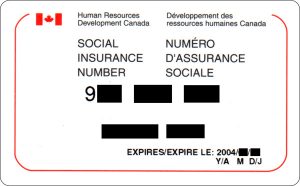When looking for a place to live, it’s good to be prepared to answer questions from the landlord. The landlord can ask you questions that determine whether or not you will be a good tenant. But they cannot ask for information that could be used to discriminate against you.
For example, a landlord who prefers married couples cannot ask “are you married?” They may use your answer to discriminate against you.
It is important to use your judgment when talking to landlords. A landlord might ask personal questions because they are interested in you and want to make conversation. It can be hard to tell if a question is being asked out of interest or with the intent to discriminate.
What can I do if a landlord asks me a question related to the protected grounds?
- Politely say, “I don’t feel comfortable answering that question”
- Politely say, “That question is not appropriate.”
- Give the landlord information that shows you are a good tenant who can pay your rent.
Source of Income
Photo by Wikimedia Commons Creative Commons License
“Can you write down your Social Insurance Number? I cannot rent to you unless you provide it.”
A landlord might ask you about your source of income. For example, a landlord might ask for your Social Insurance Number (SIN) so they can check your credit. A SIN is not required for a credit check. Your SIN can also be used to identify you as a Temporary Foreign Worker (TFW) and refugee. This information could be used to discriminate against you.
A landlord can ask for your SIN, but under the law, you do not have to give the landlord your SIN. The landlord can use other ways to perform a credit check. For example, the landlord could ask for your full name and your birth date.
Family Status
“Are you planning on having children?
A landlord may ask about your family status. They may be using this information to discriminate against you. For example, the landlord might not want children in their apartment building.
Mental Disability
Photo by Mecklenburg County Creative Commons License
“Have you been diagnosed with any mental health conditions? I need to think about the safety of my tenants.”
A landlord may try to ask if you have any mental disability. Mental disability is a protected ground under the Alberta Human Rights Act.
Ancestry
Photo by Jason Weemin Creative Commons License
“That’s an unusual last name. Where are you from?”
A landlord might ask you about your ancestry. A landlord does not need to know this information. The landlord could this information to discriminate against you.
Gender, family status, or marital status
“I don’t think a woman should live alone.”
A landlord might ask you about your marital status. You should not be refused a place to live based on your gender or whether or not you wish to live alone. The landlord might be discriminating against you based on gender, family status, or marital status.
Religious beliefs
“What church do you attend?”
A landlord might ask you about your religious beliefs. They might ask for this information because of their own beliefs. For example, the landlord might prefer to rent to Muslims. You should not be asked about your religious beliefs. The landlord might use this information to discriminate against you.
Place of Birth
Photo by Jason Bachman Creative Commons License
“Are you from India? I don’t rent to people that make ethnic foods”
A landlord might ask you where you are from. Making an assumption about you and your ability to be a good tenant based on where you are from is not appropriate. The landlord could be asking for this information to discriminate against you.
Marital Status
“Are you two married?”
A landlord might ask you about your marital status. The landlord might use this information to discriminate against you. For example, the landlord might choose to rent to a married couple because they think that married couples are more reliable.
Physical Disability
“Why do you use a cane?”
A landlord might ask you about your physical disability. The landlord might use this information to discriminate against you.
You should not rely on this article for legal advice. It provides general information on Alberta law only.
Funding for this article was provided by the Human Rights Education and Multiculturalism Fund. 
For more information on human rights, visit: http://www.albertahumanrights.ab.ca/
Published May 2016. Copyright Legal Resource Centre of Alberta Ltd.








